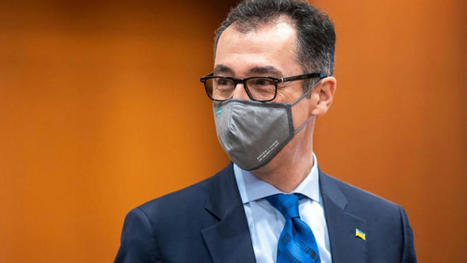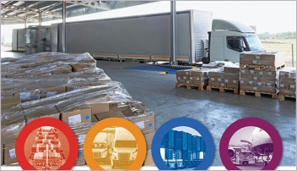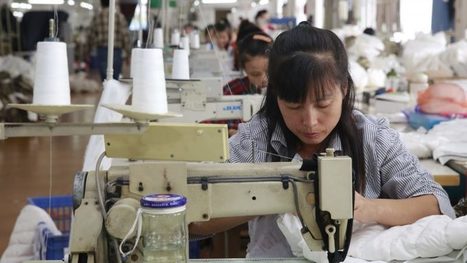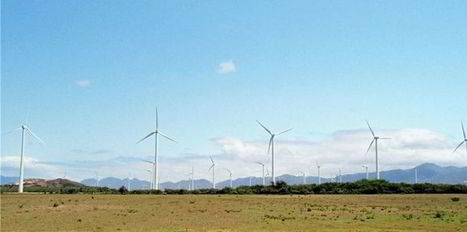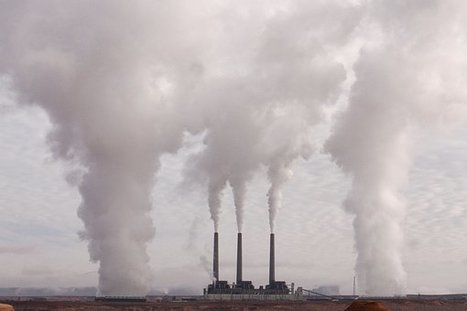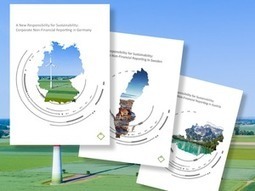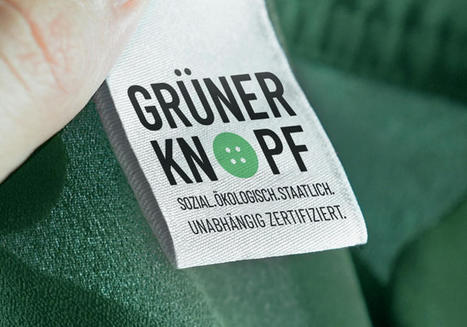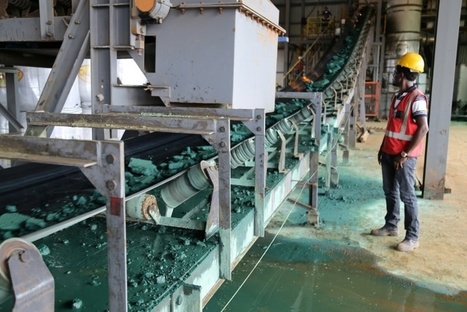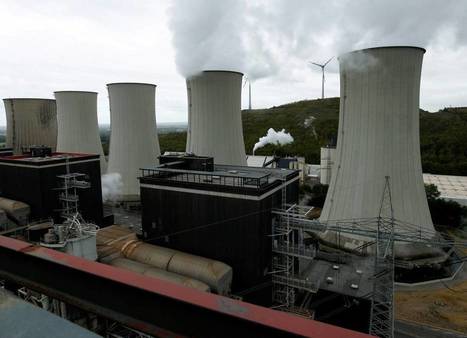 Your new post is loading...

|
Scooped by
EcoVadis
January 23, 2:17 AM
|
The government of Germany is pushing for significant changes to the implementation timeline and reporting requirements of the European Commission’s Corporate Sustainability Reporting Directive (CSRD), including pushing back sustainability reporting obligations for smaller companies by 2 years, and eliminating sector-specific reporting requirements.
The proposed changes were recently outlined in a leaked letter signed by senior government ministers to the EU Commission, and discussed by Federal Minister of Finance Jörg Kukies in an interview with German daily newspaper Börsen-Zeitung. The proposals come shortly ahead of federal elections in Germany next month, following the recent collapse of the government’s coalition.

|
Scooped by
EcoVadis
March 30, 2022 3:42 AM
|
German Agriculture Minister Cem Özdemir has joined the European Commission in dubbing agriculture a security issue. Making agriculture more sustainable and resilient is an important step towards more independence from Russia, he said in an address to German lawmakers.

|
Scooped by
EcoVadis
March 24, 2021 4:36 AM
|
Effective immediately, all Jungheinrich sites in Germany, including the company’s six German production plants, will operate exclusively on green power, the maker of lift trucks announced today.
The company added that the transition of its foreign branches and plants to green electricity will follow. At the same time, Jungheinrich has begun to generate its own solar power and is gradually equipping its sites with photovoltaic systems for this purpose.

|
Scooped by
EcoVadis
November 4, 2020 3:32 AM
|
The initiatives for due diligence in supply chains are seeing growing support for their potential to create a level playing field, but European worker representatives say the benefits of this legislation would not be limited to the workers at the start of the value chain.
In early October at the “Global Supply Chains – Global Responsibility” Conference, Germany’s Labour Minister Hubertus Heil (SPD), together with his conservative colleague Development Minister Gerd Müller (CSU), made the case for both German and European supply chain laws.
Such legislation would require companies to “‘identify, prevent, mitigate and account for’ adverse corporate impacts on human rights and the environment,” according to the definition from a 2020 European Commission report.

|
Scooped by
EcoVadis
October 21, 2020 5:14 AM
|
Japan, Germany and the United Kingdom have been able to stem the tide of plastic at home, found a study by a UK-based packaging retailer. But have their waste exports to developing countries skewed the picture?

|
Scooped by
EcoVadis
May 12, 2020 5:00 AM
|
Wind turbine maker Siemens Gamesa has set out next steps in its road map to reach net-zero CO2 emissions by 2050, with a focus on so-called ‘Scope 3’ sources of greenhouse gas coming from its international supply chain.
The German-Spanish OEM, which in late 2019 became carbon neutral, said it would be shifting its electricity supply to renewable energy-based sources in “more countries” – it currently sources 62% of its power from clean-energy globally, including 100% in Denmark, Germany, Spain and the UK.

|
Scooped by
EcoVadis
October 14, 2019 1:58 AM
|
These are the key findings of the current trend study on procurement in the German chemical industry published by consulting specialist CAMELOT Management Consultants. Around 200 managers from large and medium-sized chemical companies in Germany were interviewed about current developments in chemicals procurement for the study. The chemical industry in Germany has clearly committed itself to the task of achieving carbon neutrality by 2050, but the implementation of new production technologies is almost impossible without financial support, as provided by the Federal Government’s “National Decarbonization Program”. “This makes it all the more important for chemical companies to find their way to carbon neutrality in other areas of the value chain as well. Procurement plays a decisive role here,” says Dr. Josef Packowski, Managing Partner at CAMELOT, about the study results.

|
Scooped by
EcoVadis
July 15, 2019 2:30 AM
|
As part of its continued drive to solve the problem of product waste, German sportswear giant Adidas has unveiled two new Adidas by Stella McCartney performance apparel prototypes, including what it claims is the first 100% recyclable hoodie created from garment waste.

|
Scooped by
EcoVadis
July 11, 2019 4:21 AM
|
Textile professionals in the sustainable fashion space descended on Berlin earlier this month at Neonyt, Messe Frankfurt’s trade show for sustainable fashion where 170 labels from 20 countries presented their 2020 spring/summer collections – and where pilot-scale details of a new ’green label’ for German consumers was released.

|
Scooped by
EcoVadis
May 13, 2019 2:51 AM
|
Top Transparency Scorers
The degree to which companies were found to be transparent was assessed though the application of KPIs, as is required as per the EU Directive as well as the national laws under study. The top five German companies which received the highest transparency scores are:
1) lighting manufacturer OSRAM Licht AG (transparency score: 30),
2) pharmaceutical and life sciences company Bayer AG (transparency score: 26),
3) pharmaceutical, chemical and life sciences company Merck KGaA (transparency score: 25),
4) luxury fashion house Hugo Boss AG (transparency score: 25), and
5) chemical distribution company Brentag AG (transparency score: 22).

|
Scooped by
EcoVadis
February 14, 2019 5:59 AM
|
As reported by German newspaper TAZ (“Die Tageszeitung”) on 10 February 2019, the German Federal Ministry for Economic Cooperation and Development (BMZ) has drafted an as of yet unpublished law on mandatory human rights due diligence for German companies and their supply chains. According to TAZ, the draft text dated 1 February 2019 lays out in detail the human rights responsibilities of German companies with regard to subsidiaries and contractors abroad as well as containing proposed changes to the Commercial Code.
|

|
Scooped by
EcoVadis
September 22, 2023 4:42 AM
|
Germany is likely to generate enough energy from renewables to meet more than 50% of its energy demand by the end of this year, as the country’s Economy Minister Robert Habeck announced at a conference held by the Heinrich Böll Foundation on Monday.
As of 2022, Germany’s solar photovoltaic capacity was at about 67 megawatts, followed by about 58 megawatts of capacity from onshore wind energy and about 8 megawatts from offshore wind, according to a February 2023 report from the Federal Ministry of Economic Affairs and Climate Action.

|
Scooped by
EcoVadis
April 2, 2021 3:20 AM
|
German Chancellor Angela Merkel's cabinet has backed plans to introduce a new law which would make companies legally responsible for human rights and environmental issues throughout their global supply chains.
It would mean that larger German companies, with annual revenues of more than €400 million (US$484m), could face fines of up to two per cent of that amount - €8 million (US$9.5m) - if their suppliers step out of line.
Businesses will not automatically be liable for any shortcomings, but NGOs and trade unions will be able to bring lawsuits against German companies on behalf of foreign workers.

|
Scooped by
EcoVadis
January 14, 2021 1:25 AM
|
Germany's Grüner Knopf (Green Button) government-run sustainability scheme has been accused of failing to meet its promises to deliver clothes and textiles made in line with social and environmental standards.
Two NGOs, the Swiss organisation Public Eye and FEMNET which promotes women's development in Africa, highlight what they describe as "deficiencies" in the initiative's standard and testing process.
The German Ministry of Development (BMZ), which set up the Green Button project two years ago, rejects the accusations, insisting that the programme "delivers what it promises".

|
Scooped by
EcoVadis
October 23, 2020 3:51 AM
|
Proposed legislation to make human rights due diligence throughout global supply chains mandatory in Germany will “ripple across tier one suppliers”, analysts have said.
Victoria Gama, analyst at Verisk Maplecroft, said the proposed new law would “level the playing field on human rights obligations for the country’s major corporate organisations”.
She said: “While the legislation targets large companies, its effects will ripple across tier one suppliers globally. Extending due diligence efforts beyond tier one is unlikely, as Germany has just started developing a regulatory framework on supply chain due diligence and there is limited practice in Europe in moving further down the supply chain.”

|
Scooped by
EcoVadis
October 13, 2020 1:14 PM
|
When German carmakers seek cobalt from Congolese mines or when a chocolatier sources cocoa beans from Ghana, they may soon no longer be able to hide behind their suppliers if it turns out that the producers are using child labour or flouting environmental standards.
Under a new law proposed by the labour and development ministries, companies above a certain size will have to meet social and environmental rules all along their production chains.
The mooted law was spurred on by a deadly fire in a textile factory in Pakistan and a devastating dam collapse at a Brazilian iron ore mine that killed more than 250 people -- both of which had links to German companies.
Three in four Germans back the proposals, and even major employers like car giants BMW and Daimler and coffee chain Tchibo are on board.

|
Scooped by
EcoVadis
April 29, 2020 8:06 AM
|
Ahead of this week's digital Petersberg Climate Dialogue, an annual ministerial summit organised by the German government in preparation for the UN climate conference, both top German politicians and an alliance of 68 large German and international companies, separately urged the German Government to ensure COVID-19 economic stimulus packages are climate-friendly.
Chancellor Angela Merkel has also said that climate is on the agenda for the German EU Council presidency in the second half of 2020. Indeed, calls for a green recovery and the European Green Deal to be placed at the heart of the EU’s post COVID-19 recovery plan have been growing in recent weeks

|
Scooped by
EcoVadis
July 15, 2019 3:48 AM
|
Japanese sportswear brand ASICS Europe and German outdoor textiles specialist Sympatex are just some of the new names to join founder members H&M and Kering in the Worn Again Technologies pioneer members’ programme. The initiative, which now also includes German linen supplier Dibella, US brand Dhana and Mexican textile and garment suppliers Directex and Himes guarantees members access to certain volumes of recycled raw material from the UK textile technology specialist, which can separate, decontaminate and extract polyester polymers and cellulose (from cotton) from non-reusable textiles, as well as plastic bottles and packaging. The extracted raw materials can then go back into new fibre as part of a repeatable process that fits in with circular economy principles.

|
Scooped by
EcoVadis
July 11, 2019 4:23 AM
|
German sportswear giant Puma has set a new climate goal approved by the Science Based Target initiative (SBTi) to reduce its greenhouse gas emissions by 35% by 2030.

|
Scooped by
EcoVadis
June 25, 2019 4:26 AM
|
Lidl has set itself the goal of becoming the most sustainable discounter in Germany, by meeting its consumers' demand for more organic products. According to the purchasing director at Lidl Germany Jan Bock, consumers, particularly those aged between 14 and 30-year-olds, and over-50s prefer organic food.

|
Scooped by
EcoVadis
March 29, 2019 3:27 AM
|
German discounter Netto Marken-Discount has reduced the packaging on its self-service wurst products by 20%, in a move that, the retailer claims, also keeps the product fresher for longer. The new packaging has been rolled out to 12 different SKUs in store and marks an important step towards Netto's goal of achieving sustainable own-brand packaging solutions, the retailer reported.

|
Scooped by
EcoVadis
January 29, 2019 5:49 AM
|
Germany should shut down all of its coal-fired power plants by 2038 at the latest, a government-appointed commission said on Saturday, proposing at least 40 billion euros ($45.7 billion) in aid to regions affected by the phase-out. The roadmap proposals, a hard-won compromise reached early on Saturday after more than 20 hours of talks, must now be implemented by the German government and 16 regional states.
|
 Your new post is loading...
Your new post is loading...






